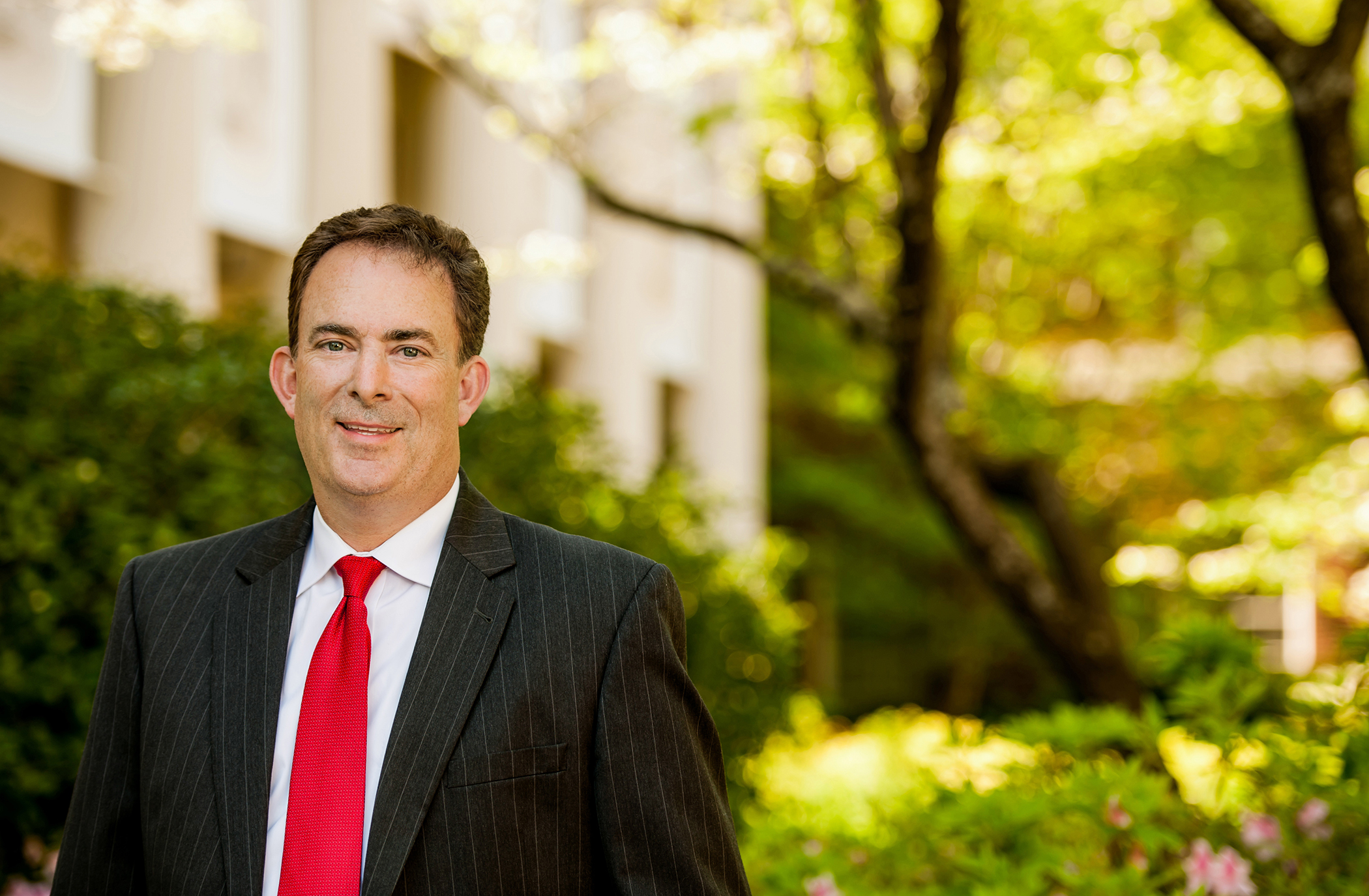Benjamin C. Ayers became dean of the Terry College of Business on July 1. A longtime faculty member and former director of the J.M. Tull School of Accounting, Ayers brings with him a deep understanding of the inner workings of the college and holds the distinguished Earl Davis Chair in Taxation.
Columns caught up with the Heflin, Alabama, native to discuss his new role at UGA, the changing nature of business education and how he plans to bring the Terry College to a “higher standard of excellence.”
Columns: Why did you want to become dean of the Terry College?
Ayers: This is a tremendous opportunity for anyone and especially for me. This treasure of a college is where I have invested 18 years to provide the very best education and opportunities for our students, foster a culture of excellence in research and in the classroom, and create opportunities for our alumni and employers to engage in an important and meaningful way in our efforts.
I am incredibly proud of the Terry College and UGA and the great strides that we have made. To have the opportunity for a broader positive impact on this college and university and to work with a group committed to excellence is truly a gift.
Columns: Before this, you were the director the J.M. Tull School of Accounting. How is being a dean different from leading the Tull School?
Ayers: Fundamentally, the focus on our core mission is similar. However, the scope of the dean’s role is much broader and more complex.
As dean I will spend less time in the classroom and in research, but I will work with the same focus, passion and diligence on efforts that have a meaningful impact on our core mission.
Columns: You were also a favorite teacher for many accounting majors. What will you miss about spending so much time in the classroom?
Ayers: I will miss the opportunities to work daily with our students; to encourage and challenge them in the classroom; to work with them closely to prepare them to compete successfully in the business world; and to see them achieve goals beyond their expectations.
Columns: Early on you were a certified public accountant. Why did you decide to change from a practitioner to an academic career?
Ayers: My parents were both educators and set great examples of the positive impact that a faculty member or administrator can have on his or her students, faculty and programs. I gained great respect for their investment into educating and helping others. I share their passion.
Columns: The first phase of the Business Learning Community is scheduled to open next year. What excites you about the new complex?
Ayers: While Brooks Hall has been a great home to the Terry College, our current facilities are unable to meet the needs of a 21st century business college. The
Business Learning Community will provide state-of-the-art facilities that allow more collaboration among faculty and students and an opportunity for each faculty member to rethink the best way to engage students in a manner that enhances their learning experience.
The Business Learning Community will be a destination for student learning, working together in teams, developing life and business skills, and networking with each other and alumni. It will be a game-changer.
Columns: What are some challenges facing business education today, and what is Terry doing to stand out?
Ayers: The ongoing challenge is to provide students an education that prepares them for successful careers in a world that has changed and is changing rapidly.
With a more globally focused and competitive business world that has been transformed by technology, today’s business education requires students to develop much more comfort in dealing with uncertainty and change and to recognize opportunities and effectively traverse challenges when business paradigms shift and when economies prosper and struggle.
At Terry, we are making concerted efforts to provide our students with an education informed by leading scholars and today’s business leaders to ensure that our students are able to out-compete their counterparts. Through a combination of relevant, current and rigorous coursework, considerable on-campus exposure to today’s business leaders and internships that provide students with opportunities to demonstrate, utilize and enhance their skills, our students are better prepared for successful careers than ever before.
Taking advantage of today’s latest technology also allows us to reach and serve a wider variety of students, whether through our very successful Executive and Professional MBA programs, which employ a mixed delivery method, or through our recently launched Online BBA program, which allows students to complete a general business degree while continuing to meet the demands of holding down a job or raising a family.
Columns: What do you think will change the most about Terry in the coming years?
Ayers: Today, the Terry College is recognized among the top public business schools with a number of programs ranked among the very best public and private business schools and with faculty and departments who have earned impressive national recognition for their research.
The challenge for Terry is to not reverse its course or be complacent, but to focus on substantive efforts to enhance our programs, provide the very best opportunities for our students locally, nationally and globally, nurture a research and teaching culture that attracts and retains top faculty, and generate the needed resources to support our core mission.
With this focus, our goal is that the most visible change for Terry will be a higher standard of excellence.
Columns: When you’re not at Terry, what do you do for fun?
Ayers: I love spending time with my wife and three children and being as physically active as I can. Golf and tennis are great life sports that I enjoy when my schedule permits.


